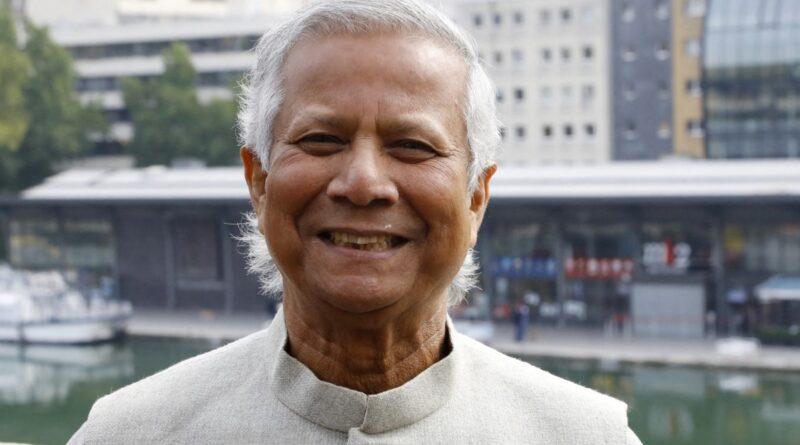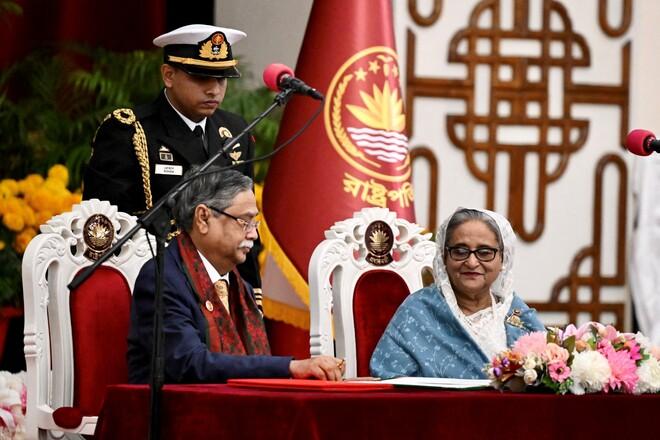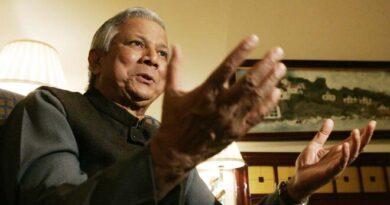Nobel laureate BankerMuhammad Yunus to head Bangladesh’s interim government: Presidential Office
Bangladesh’s presidential office says Nobel laureate banker Muhammad Yunus will head the country’s interim government.
According to the French news agency AFP, the presidential spokesperson said that the decision to establish an interim government under the leadership of Yunus was made at a meeting of the president, the leadership of the army, and the leaders of “Students Against Discrimination” in the presidential palace.
Earlier, Muhammad Yunus had said that he is ready to head the new interim government of the country.
Muhammad Younis has agreed to take over the interim government on Tuesday, a day after Hasina Wajid resigned as prime minister and left the country.
84-year-old Dr Muhammad Younis, the founder of micro-financing in Bangladesh, is credited with lifting millions of people out of poverty and is highly respected by the people of Bangladesh.
Protesting students in Bangladesh have nominated Muhammad Yunus to head the new Abbasi government and said they will not recognize a military-backed government.
Dr. Muhammad Younis also called for new elections while talking to AFP and said “if Bangladesh and the citizens of my country need me, I am ready for it.”
76-year-old Hasina Wajid has been in power since 2008 and was accused of widespread rigging in the general elections held in January this year.
Then in July, Hasina Wajid was forced to resign and leave the country after weeks of protests by millions of people.
Bangladesh Army Chief Waqar-ul-Zaman on Monday announced the resignation of the Prime Minister and the formation of a new interim government and said that “it is time for the violence to stop.”
On Tuesday, President Shahabuddin dissolved Bangladesh’s parliament as demanded by the student movement and the Bangladesh National Party (BNP).
The students have also demanded fresh elections within three months.
Asif Mehmood, a central leader of the protesting student alliance Students Aggressive Discrimination (SAD), wrote on his Facebook “We have faith in Dr Younis.”
Transfers and Dismissals in the Army
On the other hand, the army on Tuesday transferred several generals and removed some officers considered close to Hasina Wajid. Apart from this, the commander of the US-sanctioned paramilitary force Rapid Action Battalion, Zainul Hassan, has also been dismissed from his post.
According to the statement of the President of Bangladesh and BNP, former Prime Minister Khaleda Zia, who has been serving a prison sentence for several years, has also been released.
The capital of Bangladesh remained largely peaceful on Tuesday. Traffic was partially restored, shops started opening and some international flights landed at Dhaka Airport, but most government offices remained closed.

Earlier on Monday, when the Army Chief announced the resignation of Prime Minister Hasina Wajid, lakhs of people came out on the streets to celebrate and some people even entered Hasina Wajid’s official residence and looted goods.
21-year-old Sajid Ahanf compared the recent movement to the 1971 War of Independence and said, “We have got rid of dictatorship.”
The police have said that the mob attacked Hasina Wajid’s supporters out of revenge. They broke into police offices as well as a jail and freed more than 500 prisoners.
Police and officials told AFP that Monday was the deadliest day of the wave of protests, followed by 10 deaths on Tuesday. The number of people killed during these protests has reached at least 432.
You may also like to read:
Release of political prisoners
The government of Bangladesh’s former Prime Minister Hasina Wajid has been continuously accused of jailing political opponents and violating human rights.
Hundreds of mothers of political prisoners gathered in front of the Military Intelligence (MI) building in Dhaka on Tuesday, the day after the fall of Hasina Wajid’s regime, to demand the release of their loved ones.
“We want an answer,” said a serious woman, Islam Toli, standing in front of the MI building.
Hasina Wajid’s future in India
On the other hand, Hasina Wajid’s future in India is also subject to concerns.
According to AFP, sources said that Hasina wanted to go to Britain with Wajid, but her plan fell into disrepute after the British government called for an UN-led investigation into the unusual “violence”.
Thomas Kean of the International Crisis Group has said that the new authorities of Bangladesh will face a big challenge.
He said that the establishment of democracy, which has been badly affected for many years, will be a long-term goal in front of the interim government that will take over power.






